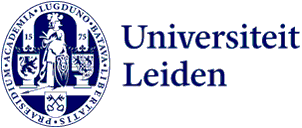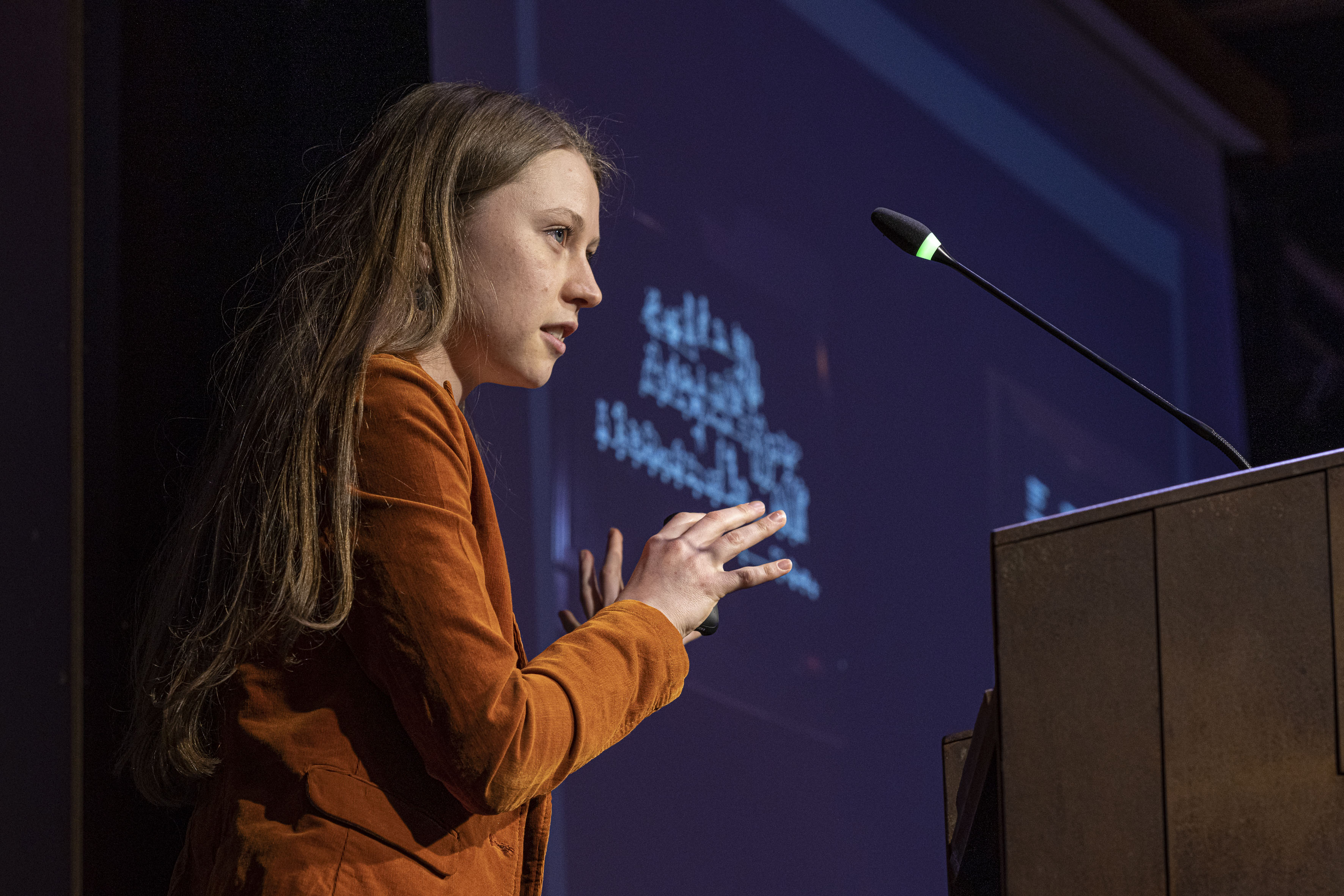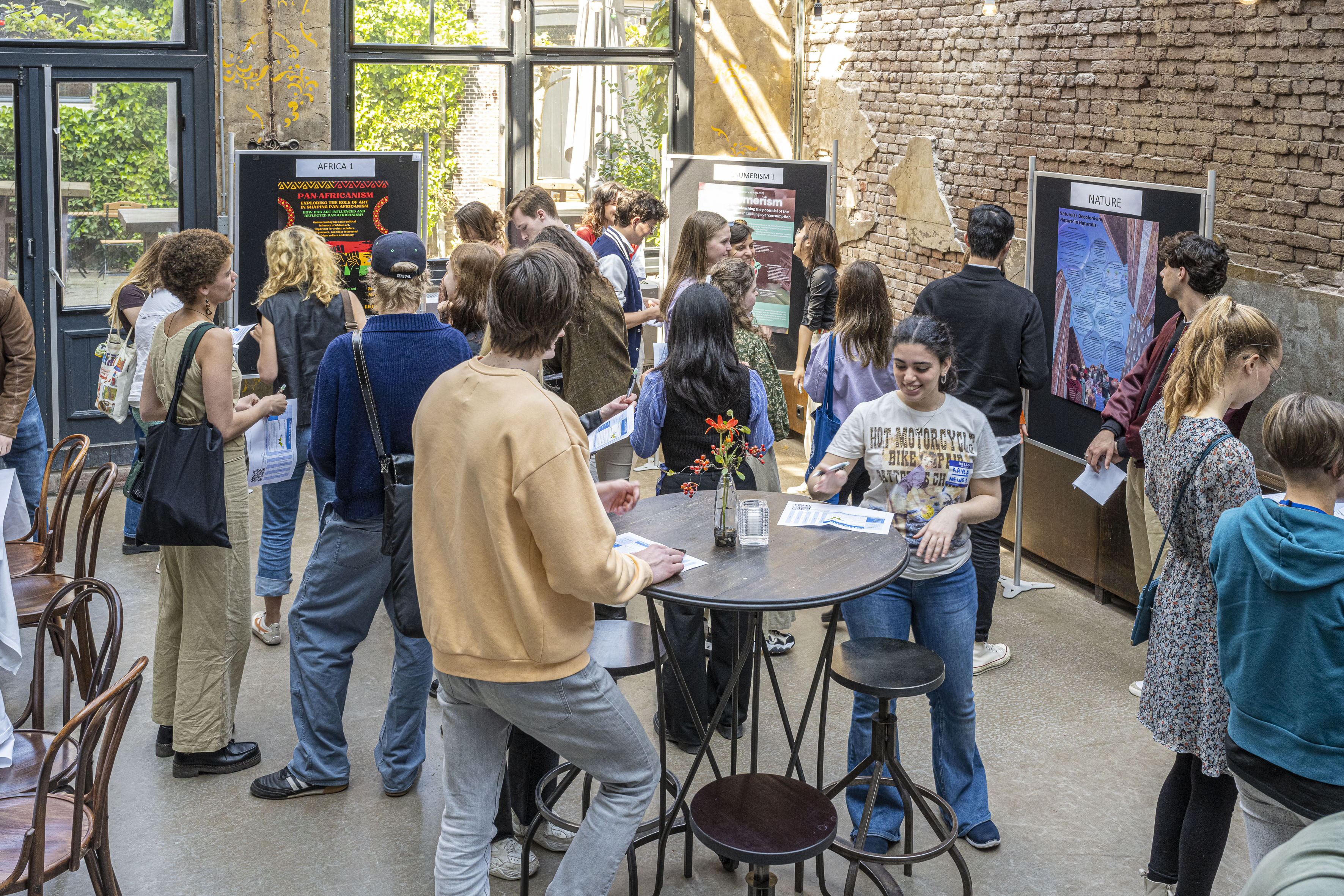
‘When you work together, you get a much broader understanding’
At the Capstone Conference, Honours College students of the Humanities Lab presented their final projects. In small groups, they conducted research on relevant societal issues – gathering insights from a multitude of disciplines. ‘The aim is to learn as much as possible from each other.’
There is an enthusiastic and vibrant atmosphere in Scheltema. Different groups of students present the preliminary results of their research projects. There is enormous diversity in the chosen subjects. Pan-African art, nature, consumerism and health are just a few of the topics discussed. In the coming month, students will conclude their research on these themes in a journal, a so-called ‘green paper’.
Multidisciplinary
What is striking is that there are not only various themes, but that within themes, multiple perspectives are taken into account. Students learn to analyse societal issues and find solutions together. This requires combining methods and insights from different research fields. The groups are therefore composed as diversely as possible, says supervising lecturer Jan Sleutels. ‘The aim is to learn as much as possible from each other.’
The multidisciplinary aspect is exactly why this course appealed to Mirek Bui (International Studies). Even though he is not pursuing a technical degree, he is very interested in artificial intelligence. ‘It is really important to look at this topic from the perspective of the Humanities, because it can help us too in our research,’ he explains. Last year for instance, Mirek used algorithms to analyse texts.
Change things
Participants Robin Sangers (Law and History) and Sara Drino Do Amaral Coutinho (International Studies) tackled the theme of health for their research. They looked at support for students suffering from mental health issues. They examined facilities at Leiden University, the University of Amsterdam, Erasmus University and TU Delft for their research.
'If you stay in your own world of experience, you can easily develop tunnel vision'
The subject is close to their hearts. ‘It is a relevant topic,’ Sara explains. ‘Many students feel alone and a bit lost.’ That’s why they do not intend to just forget about the research after the end of the course. Instead, their recommendations will be shared with the researched universities. ‘They can then work with them and change things.’
A shared vision
The participants of Humanities Lab were mostly able to choose their own courses during the Honours programme. The fact that everyone ultimately comes together again at the Capstone Conference is essential, according to participant Emma Ooms (History). ‘If you stay in your own world of experience, you can easily develop tunnel vision. When you work together, you get a much broader understanding.’ Eveline de Bie (Psychology) concurs. ‘Everyone has their own background and expertise, but that is transformed into a shared vision.’
Text: Robin Buijs
Photos: Buro JP






